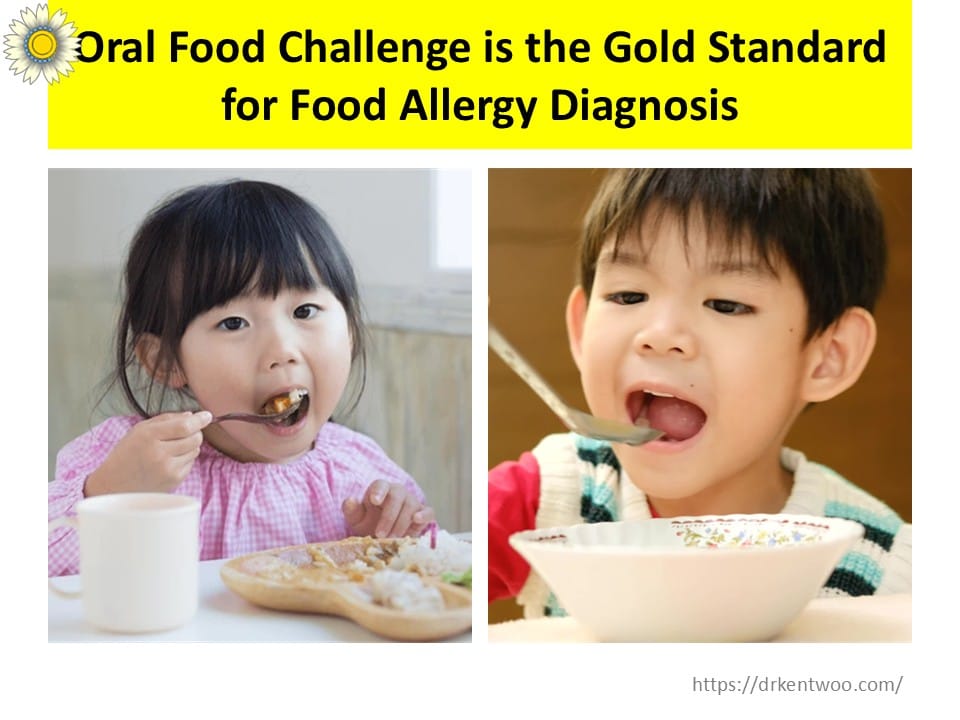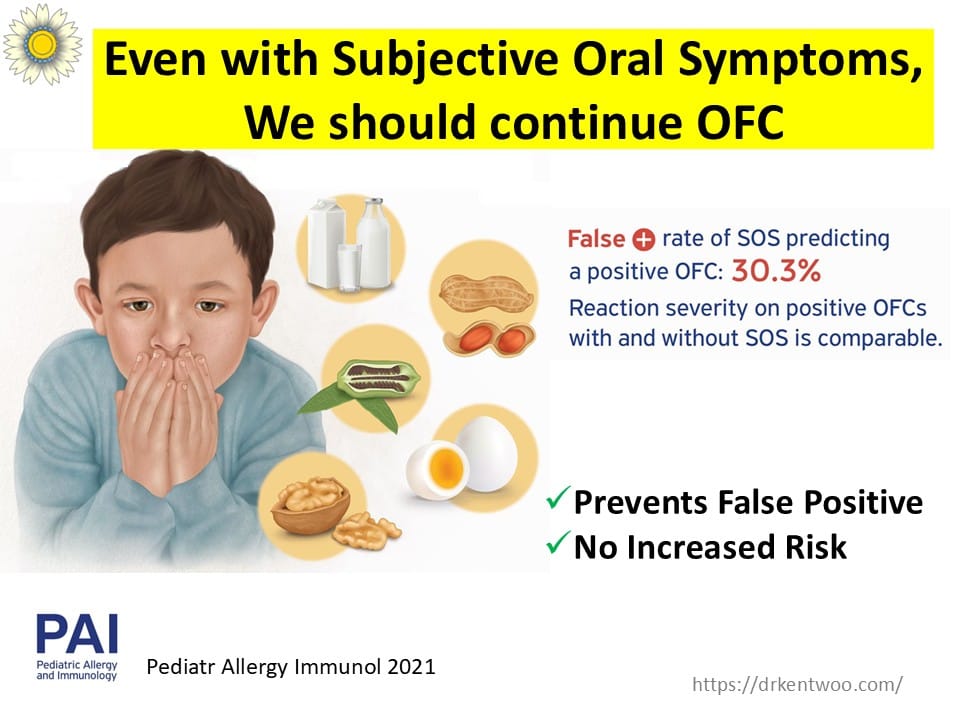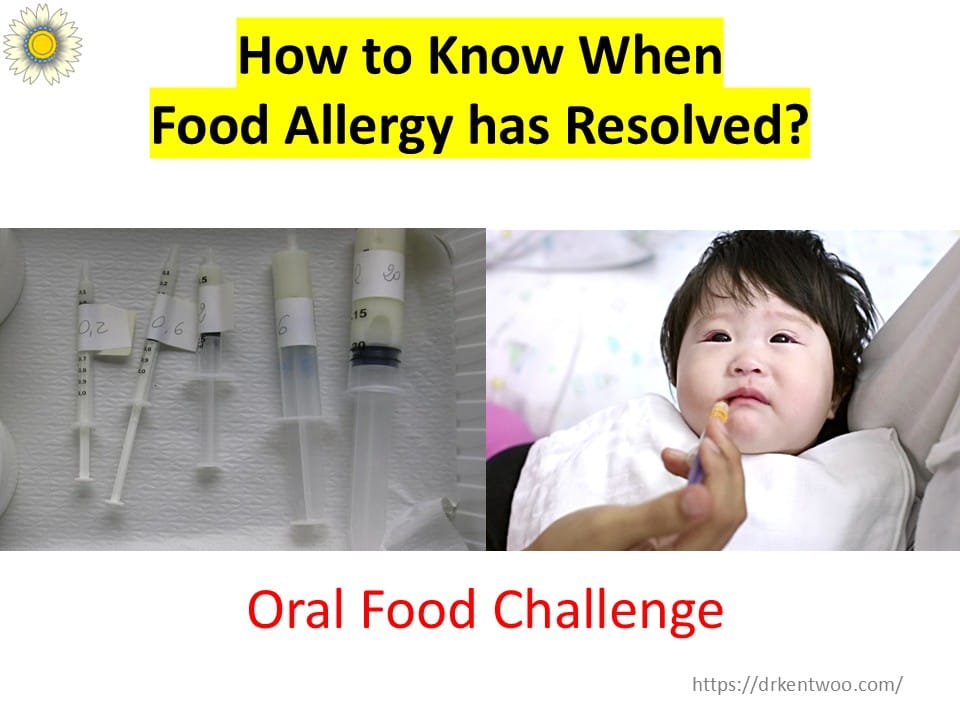A Patient’s Guide to Oral Food Challenges
If you or your child has a diagnosed food allergy, the idea of an oral food challenge might seem intimidating. After all, it involves eating a food that was previously off-limits. But in a controlled setting, under medical supervision, this test can be a powerful tool to determine whether a food allergy has been outgrown or was misdiagnosed in the first place.
Whether you’re a parent preparing your child for a food challenge or an adult considering one yourself, understanding the process can help ease anxiety and ensure you’re well-prepared.
What is an Oral Food Challenge?

An oral food challenge (OFC) is a medically supervised test where a person eats small, increasing amounts of a suspected allergen to determine if a reaction occurs. The goal? To confirm or rule out a food allergy in a safe, controlled environment.
This test is considered the gold standard for diagnosing food allergies because other methods—such as skin prick tests and blood tests—don’t always provide clear answers. A positive test result doesn’t necessarily mean an allergic reaction will occur when eating the food. The only way to know for sure is through a carefully monitored oral challenge with an allergy specialist.
At The Allergy Immunology Clinic, an oral food challenge may also be part of our food allergen immunotherapy protocol. In this case, a fixed dose of the allergen is given, and the patient is monitored for any reaction. If tolerated, the same dose is continued daily at home until the next appointment, where an updose oral food challenge is performed to gradually increase tolerance. [Click here to learn more about food immunotherapy.]
Why an Oral Food Challenge May Be Recommended
An allergist may suggest an oral food challenge if:
✅ There’s a chance a child or adult has outgrown their food allergy.
✅ The person has a borderline test result for a certain food, and the allergist wants to confirm whether an allergy truly exists.
✅ The goal is to rule out other conditions like Food Protein-Induced Enterocolitis Syndrome (FPIES) or Oral Allergy Syndrome.
✅ There’s a need to determine if a person can tolerate a food in a baked or processed form (such as baked milk or egg).
For children, passing an oral food challenge can be life-changing—it means new food options, less anxiety about accidental exposure, and improved quality of life. For adults, it can bring peace of mind and dietary freedom.
How to Prepare for an Oral Food Challenge
Preparation is key to making the experience as smooth and stress-free as possible. Here’s what you need to know:
1. Talk with Your Allergist
Before scheduling the test, you’ll discuss your (or your child’s) medical history, previous reactions, and any concerns. Your allergist will provide specific guidelines for stopping antihistamines or other medications before the test.
2. Make Sure You’re Healthy
You or your child should be in good health for at least 24 hours before the challenge. This means no colds, fevers, asthma flares, or eczema flare-ups. If any symptoms arise, contact the clinic to let us know. We will usually maintain the appointment to evaluate if OFC can still proceed. Even if OFC cannot be done, it is a good opportunity to get evaluated and treated for being unwell.
3. Plan for a Long Stay
OFCs typically take between 3 to 6 hours, sometimes longer if there is a reaction. Be prepared to stay at the clinic for the day.
The Allergy Immunology Clinic’s single dose OFC protocol usually take around 2 hours.
👜 What to bring:
- Entertainment: Books, toys, tablets, or anything to help pass the time.
- A comfort item (for young children): A favorite stuffed animal or blanket.
- Change of clothes (just in case of spills or a reaction).
- Safe snacks for after the test—because if all goes well, you’ll likely be hungry!
4. Prepare Your Child (or Yourself) Mentally
For kids, role-playing at home can help. Explain in simple terms:
“We’re going to the doctor’s office to try a little bit of a food to see if your body is okay with it now.”
For older kids and adults, writing down any worries or questions ahead of time can help address anxieties before the test.
5. Follow All Pre-Test Instructions
🚫 We do not usually ask you to avoid antihistamines.
🚫 We do not usually ask you to skip asthma medications.
🚫 Please refrain from eating before the challenge (call us if unsure).
What Happens During an Oral Food Challenge?
The test is conducted in a controlled, medical setting with a trained team ready to handle any reactions. Here’s what to expect:
🥄 You (or your child) will be given a very small dose of the suspected allergen.
⏳ After 10-20 minutes, if no reaction occurs, another slightly larger dose is given.
🔄 This process continues every 10-20 minutes for about 3 hours until a full serving is eaten—or until symptoms develop.
If there is no reaction, you’ll be monitored for another 1-2 hours before going home with instructions on how to add the food into your diet. If there is a reaction, the medical team will respond immediately with appropriate treatment.
What If a Reaction Happens?

It’s normal to feel nervous about this possibility. However, keep in mind:
✔️ The test is done in a safe environment with trained professionals.
✔️ Medications (epinephrine, antihistamines, etc.) are on hand to treat any symptoms.
✔️ A mild reaction (such as a few hives) might just mean the test is stopped early.
✔️ If anaphylaxis occurs (which is rare), it will be treated immediately.
For kids, experiencing a reaction in a controlled setting can actually be a learning experience—helping them recognize their body’s response and learn how to manage it safely.
What Happens After the Challenge?
- If you pass, your allergist will give you a plan to reintroduce the food regularly into your diet.
- If you react, you’ll receive guidance on continued food avoidance and management strategies.
- If the results are inconclusive, your allergist may suggest further testing or retesting later.
Ready to Schedule a Food Challenge?

If you’re wondering whether you or your child are eligible for an oral food challenge, the best next step is to schedule a consultation with the Allergy Immunology Clinic. A proper evaluation can help determine if it’s time to reintroduce a food—or if continued avoidance is necessary.
Food allergies can be life-changing, but with the right approach, they don’t have to be life-limiting. Contact our clinic today to take the next step toward clarity and confidence in managing food allergies!




